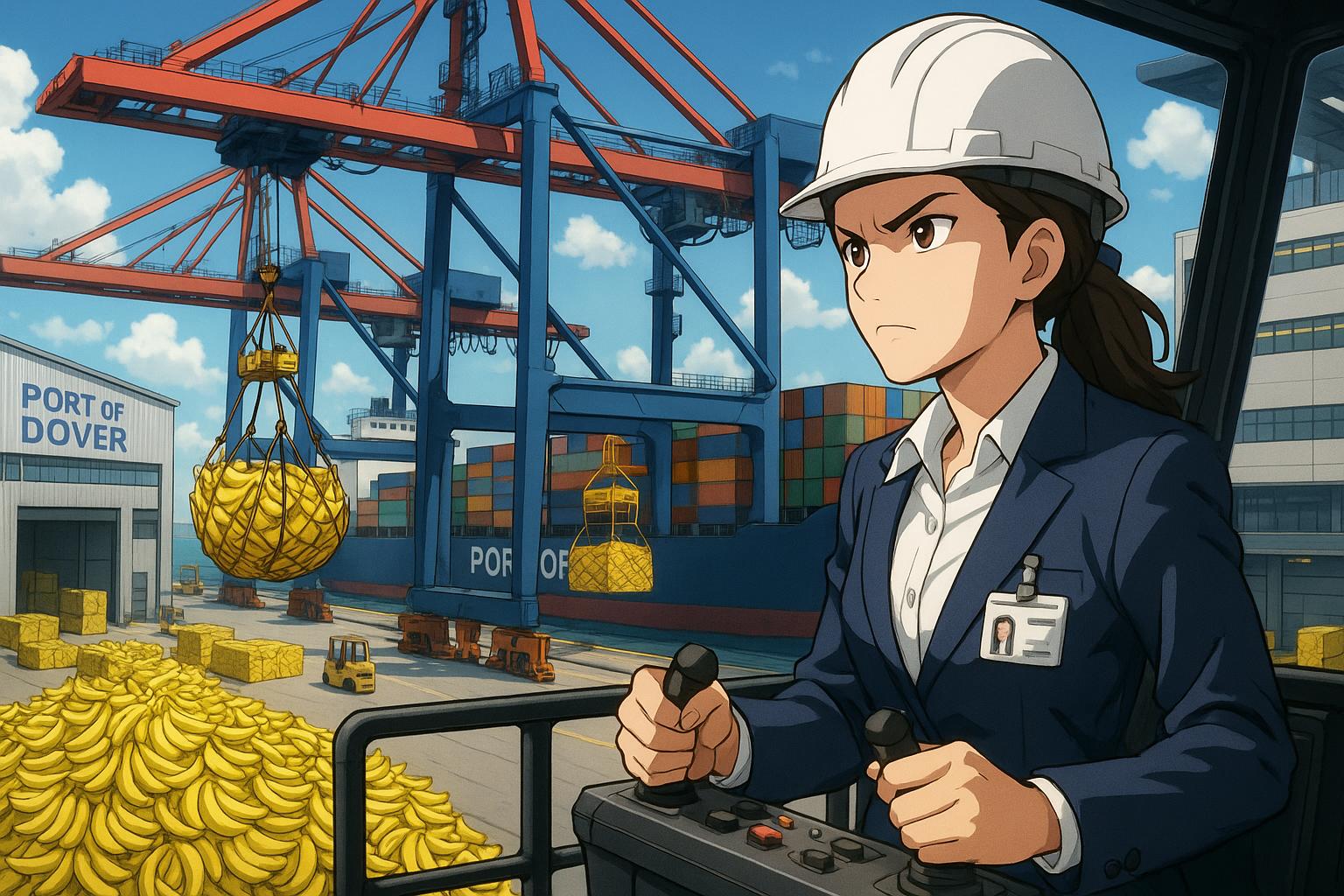In the world of logistics, where supply chains intertwine with the everyday lives of consumers, the documentary "Dover 24/7: Britain's Busiest Port" crafts an engaging narrative that transforms what many perceive as mundane into a symphony of teamwork and efficiency. The sheer scale of operations at the Port of Dover is illustrated through the unloading of vast shipments, notably a single consignment of bananas from Ecuador, which amounts to three million units packed onto nearly 700 pallets. This consignment arrives aboard a colossal 140,000-ton container vessel, underscoring the immense logistical challenges involved.
Rob, the cargo operations manager, expertly directs two remote-controlled cranes responsible for the unloading, while Andy oversees the transit of these bananas to expansive warehouses. Each pallet is carefully inspected for damage by Kev, and another Andy ensures the bananas are maintained at a precise 14°C, a crucial temperature threshold to prevent premature ripening. This intricate operation hints at broader implications, especially as bananas have become a staple in British supermarkets, reflecting changing consumer habits and expanding global trade dynamics.
The documentary not only focuses on Dover but also draws a compelling comparison with historical port operations, featuring archival footage of the Port of London in 1967. This juxtaposition serves to remind viewers of the evolution in shipping and trade practices. At that time, goods like furs from Canada and Africa, as well as exotic spices, filled the docks, showcasing a starkly different trade landscape. Such historical reflection raises questions about how our current practices will be perceived decades from now. Will the way we manage trade logistics, mired as it is in policies and regulations, appear just as archaic?
While the film portrays the operational ingenuity at both ports, it also subtly points to the complexities of modern border control. The narrative shifts to a moment involving British authorities dealing with a Romanian family unable to board a ferry due to overcrowding in their vehicle. This anecdote highlights the often perplexing nature of contemporary immigration regulations, particularly in contrast to the significant influx of individuals arriving via precarious means. The juxtaposition of a family’s plight against the backdrop of bustling port operations serves to inject a note of irony into the viewing experience.
This intricate ballet of logistics at Dover is reflective of a larger global framework. In 2024, DP World Posorja in Ecuador emerged as a pivotal player in international trade, achieving a record throughput of 955,728 TEUs (twenty-foot equivalent units). This reinforces the interconnectedness of global ports and their significance in modern commerce. As DP World continues to invest in infrastructure and services, it emphasizes a commitment to operational excellence and sustainability, profoundly linking this development to the supply chains that keep our supermarkets stocked.
In a forward-looking vision, one cannot help but wonder how the logistics industry will evolve amidst the complexities of trade and regulatory landscapes. As we move further into an era dominated by rapid shifts in consumer behaviour and increasing global interdependence, the practices we take for granted today may soon seem equally foreign to future generations.
📌 Reference Map:
Source: Noah Wire Services
